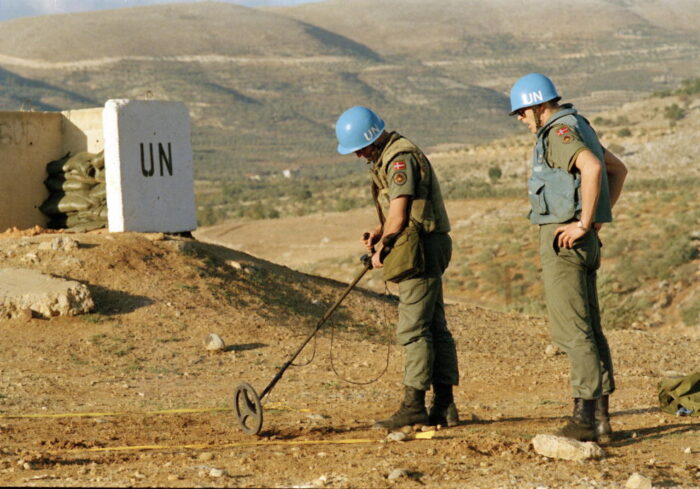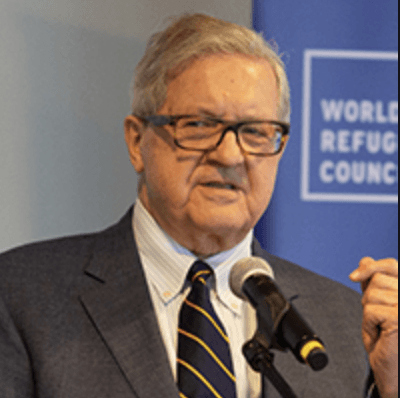By HRH Prince El Hassan bin Talal and the Hon. Lloyd Axworthy
Over the past year, the fear of the war expanding across the region has sadly become a reality. In the last month, the conflict has escalated into Lebanon, displacing nearly one million people, many fleeing to the north, while others seek safety across borders. This situation underscores the failure to implement long-standing international resolutions, such as those concerning both the Israeli-Palestinian and Israeli-Lebanese conflicts. Despite unanimous support from all five permanent members of the UN Security Council, Resolution 1701 of August 2006 remains unenforced, further destabilizing the region.
With the war spreading across borders, Lebanon’s fragile economy, already in turmoil since 2019, is now further destabilized. The influx of displaced people has led to increased demand for goods and services, driving prices higher and straining already limited resources. Consequently, the humanitarian crisis in Lebanon has reached alarming levels. With a population of 5.7 million, roughly 20 percent of the population is in urgent need of assistance. According to the IOM(International Organization for Migration), the number of IDPs (Internally Displaced Persons) has substantially increased over the past year, rising from 74,000 to 740,000. The strain on Lebanon’s already fragile infrastructure and limited resources has left many communities struggling to access basic necessities such as food, healthcare, and shelter. Humanitarian agencies, such as the UNHCR (United Nations High Commissioner for Refugees) are working tirelessly to provide relief, but the scale of the crisis requires urgent international support to prevent a complete collapse of essential services and to address the growing vulnerabilities of both Lebanese citizens and displaced populations.
Similar to UNRWA’s (United Nations Relief and Works Agency for Palestine Refugees) mandate, the UNHCR carries a humanitarian and development mandate aimed at providing essential assistance to refugees in Lebanon. UNHCR’s work includes offering protection, shelter, healthcare, and education, as well as addressing the urgent needs of refugees displaced by conflict.
In Lebanon, UNHCR has been vital in coordinating efforts with local and international organizations to manage the refugee influx, ensure basic services, and provide long-term development support to both refugees and the host communities. However, the ongoing instability in the region poses significant challenges to its operations, as escalating conflicts increase the humanitarian burden and complicate the already difficult living conditions for displaced populations.
The recent attacks on UNIFIL (the United Nations Interim Force in Lebanon) serve as stark reminders that humanitarian and peacekeeping missions are essential pillars of stability and hope in conflict zones. Targeting these personnel is not only a grave violation of international law but also a direct assault on the principles of humanity and the commitment to saving lives.
The First Additional Protocol to the Geneva Conventions mandates that civilian medical personnel must be respected and protected, and all available assistance should be provided to them in areas where civilian medical services are disrupted due to combat activity. Yet, these principles are being violated.
Hersch Lauterpacht once wrote, “If international law is the vanishing point of law, the law of war is the vanishing point of international law.”
This poignant observation resonates deeply today as we witness the continued degradation of international norms and humanitarian principles in our region. Over the past year, the rapid deterioration and the passively accepted fragmentation have introduced new layers of complexity to the already fraught process of peacemaking. Since the end of the Second World War, “limited confrontation” has been the prevailing approach, yet it remains a battle that no one can truly win. This ongoing instability obstructs efforts toward lasting peace and regional harmony.
In the 1980s, with the founding of the Independent Commission on International Humanitarian Issues (ICIHI), the goal was to ensure the implementation and compliance with International Humanitarian Law (IHL) in situations of armed conflict. IHL — a set of rules designed to limit the effects of war for humanitarian reasons — seeks to protect those not actively engaged in hostilities and to restrict the methods and means of warfare. However, the tragic events unfolding today highlight the extent to which IHL is being disregarded.
The international community must act swiftly to address the escalating crisis, enforce international laws, and uphold the protection of those most vulnerable to the devastating consequences of this conflict.
Photo: UN Photo/John Isaac (26/Nov/1990)


